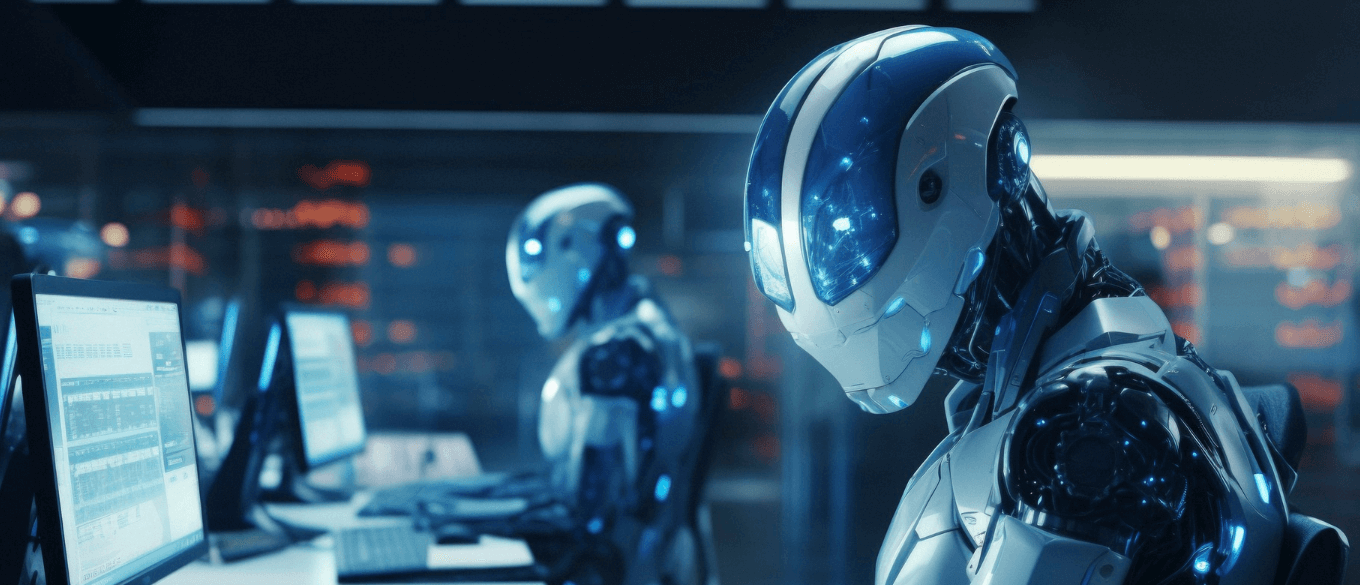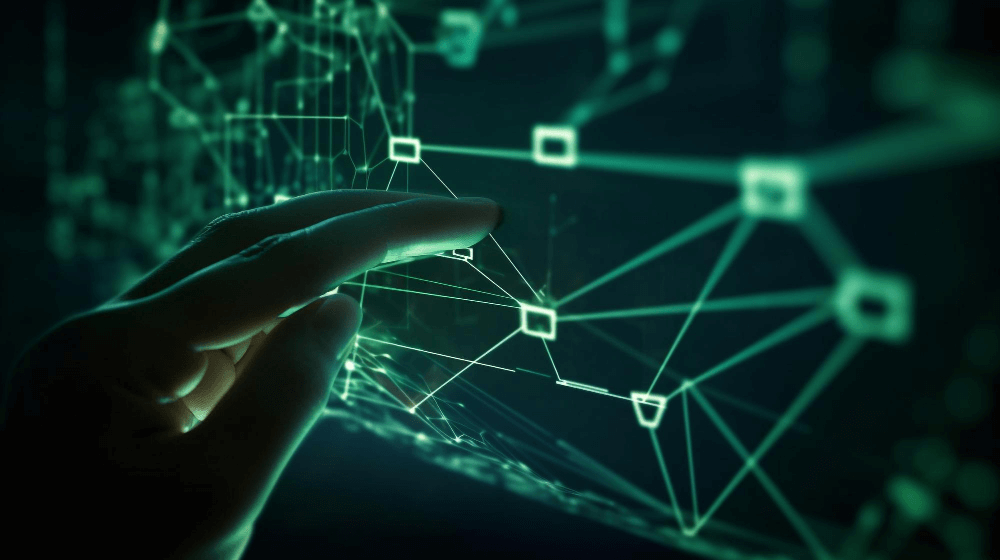The Power and Dangers of Artificial Intelligence in Cybersecurity
AI in cybersecurity is a double-edged sword, strengthening defenses against cyber threats while also providing malicious actors with powerful tools. This dynamic interplay creates a constant cat-and-mouse game between security professionals and hackers.

Today, where cybercriminals constantly outsmart conventional security measures, the emergence of AI presents a significant opportunity to strengthen cybersecurity defenses. However, this double-edged sword also poses new threats as cybercriminals also use AI technology for their malicious activities. This post takes a peek into the fascinating world of AI in cybersecurity, exploring its potential as both a powerful tool for bolstering defenses and a potential weapon in the hands of cybercriminals. Moreover, it looks at the dynamic cat-and-mouse game that continuously evolves as security professionals and hackers battle to outsmart each other in a landscape increasingly driven by AI.
The Role of AI in Strengthening Cybersecurity
Advanced Threat Detection: AI enables cybersecurity systems to detect and respond to threats in real-time by analyzing vast amounts of data, identifying patterns, and uncovering anomalies that may not be apparent to human operators
Effective Vulnerability Assessment: AI algorithms can scan and analyze networks, applications, and systems to identify potential vulnerabilities, thus allowing proactive remediation rather than reactive responses.
Enhanced Phishing and Malware Detection: AI-powered systems can recognize and block sophisticated phishing attacks and detect malware signatures with higher accuracy, reducing the risk of successful cyber intrusions.
AI as a Weapon in the Hands of Cybercriminals

Evolving Attack Vectors: Cybercriminals are increasingly harnessing AI to develop sophisticated attack techniques that can bypass traditional security systems. These include AI-generated spear-phishing campaigns, polymorphic malware variants, and AI-driven social engineering attacks, making it harder for defenses to detect and counter these threats.
Adversarial Machine Learning: By exploiting vulnerabilities in AI algorithms, cybercriminals manipulate AI models to deceive or fool security systems into misclassifying benign actions as malicious. This technique challenges the integrity and reliability of AI-powered cybersecurity defenses.
Automated Attacks: AI allows cybercriminals to automate repetitive and time-consuming tasks, enabling them to launch large-scale attacks at unprecedented speeds. For example, AI-powered bots can relentlessly scan for vulnerabilities, attempt brute-force attacks, or launch distributed denial-of-service (DDoS) attacks, making defense mechanisms more overwhelmed and vulnerable.
Exploiting AI Weaknesses: The rapid development and deployment of AI may result in security oversights, such as biased data influencing AI models or vulnerabilities in AI frameworks themselves. These vulnerabilities can be exploited by cybercriminals to undermine AI-powered defenses.
The Ongoing Cat-and-Mouse Game
AI-Augmented Security Tools: Security professionals are leveraging AI to develop increasingly advanced tools to detect, prevent, and mitigate cyber threats. By combining human expertise with AI capabilities, security teams can gain a significant advantage in the ongoing battle against cybercriminals.
AI-Curated Deception Techniques: Researchers are exploring the use of AI to create sophisticated deception techniques, where AI-generated honeypots and breadcrumbs trick cybercriminals into revealing their tactics. Such techniques enable security experts to gain insights into evolving cybercriminal strategies.
The Arms Race in AI: As AI becomes more prevalent in cybersecurity, hackers are also incorporating AI into their arsenals. Adversarial machine learning, where AI models are manipulated to evade detection, has created a need for AI-empowered security measures that can recognize and counter these attacks.
Ethical Considerations: The use of AI in cybersecurity raises ethical concerns, such as privacy invasions or the potential for AI to be weaponized against innocent individuals. Striking a balance between the deployment of AI for security purposes while respecting privacy and maintaining human oversight is crucial.
Cybersecurity Workforce Challenges: The rapid evolution of AI in cybersecurity necessitates a highly skilled workforce capable of understanding and countering these threats. Addressing the shortage of cybersecurity professionals and fostering ongoing training and collaboration is essential in this cat-and-mouse game.

Artificial intelligence offers immense potential to strengthen cybersecurity defenses, enabling rapid threat detection and sophisticated vulnerability assessments. However, cybercriminals are increasingly exploiting AI technology themselves, deploying advanced attack vectors that challenge conventional security measures. The ongoing cat-and-mouse game between security professionals and hackers highlights the need for constant innovation and adaptation in the field of cybersecurity. By leveraging AI-augmented security tools and employing AI-curated deception techniques, defenders can stay ahead of cybercriminals. Yet, ethical considerations, the development of an AI-empowered arsenal, and addressing workforce challenges are crucial for ensuring AI is harnessed responsibly. In the evolving landscape of cybersecurity, the responsible and strategic use of artificial intelligence will be pivotal in protecting our digital infrastructure.
Try GhostVolt Business Today
User roles and management
Meet regulatory compliance and legislation
Asset restriction with tracking
Auditing, file and user history and reporting
Works just like Windows Explorer, but securely
No Credit Card or signup needed

Our Ratings




